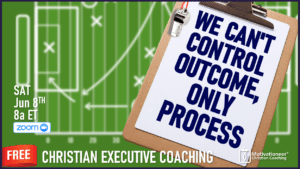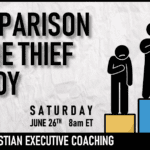List it or Lose It – Part 1

How many of these statements apply to you in the last two weeks?
- I have felt overwhelmed at the sheer volume of my work
- I missed (or nearly missed) an important deadline
- I completely forgot to fill in the blank
- Many potentially important emails sit in my Inbox, unread
- I cancelled a meeting, last minute, to free up time on my calendar
- I work several 12-hour days each week
- I work at least six hours most weekends
I won’t say, “If you selected at least three from the list above then you are scientifically considered a mess.” You’re not a mess. I will say, however, if one or more of these comments apply, you will benefit (no, greatly benefit) from the practice of list making. Yes…the age-old practice of a to-do list.
The Real Enemy
It’s hard to fight an enemy we don’t see. So, who is the enemy when we don’t get things done?
We are!
This truth is based on a psychological phenomenon known as the Zeigarnik Effect.
Bluma Zeigarnik was a Soviet psychologist who, in 1927, conducted a now-landmark experiment where she tested the ability of participants to remember tasks. (Read the original artifact here). The outcomes revealed something curious about how our brains are wired to mark things off a list.
We are said to be experiencing the Zeigarnik Effect when we have intrusive thoughts about something we once pursued but left undone.
This happens to all of us. I mean, every one of us experiences a nagging feeling, an intrusive thought, when we aren’t getting everything done that we want to get done.
“It Feels Like I’m Forgetting Something”
Ever get ready to leave the house and have a sense that you are forgetting something? That sense is the Zeigarnik Effect. Have you ever gone to the grocery store without first making a list, and try to walk the aisles hoping to scan the shelves effectively so you don’t forget an item? That low-level worry you might forget something? That’s Zeigarnik.
We have an automatic signal floating around our brains when something is only partially complete but we’ve moved on to a new task. These thoughts trigger a dissonance until we complete the unfinished work. At some point we will experience stress when higher level tasks are incomplete. And yet this happens in our subconscious.
This is where a To Do List is invaluable to our own success. By getting the unfinished work out of our brain and onto a paper (or electronic tool in our phone or laptop or tablet) we are actually removing the disharmony, the static, the intrusive thought.
Making lists is often so effortless it’s inconceivable we don’t use this same technique for our career action items. Those who do, the disciplined few that start each day with a prioritization list, have a big advantage.
Not the list-making type? That’s okay. Look for the next post for creative ways to make it a career changing habit.




